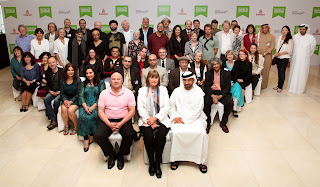Sarah Duncan has been running a great series of posts on editing. The latest one is here. The big thing is that editing is hard work. I can hear my inner student SIGH. I hate hard work or at least I did. I have learned to love it. Back when I mentioned I was on the 27th draft of August Rock people were amazed so I outlined my process (here). It's long and there are no short cuts. But in the past I would try and find them...The result was that I short changed myself and didn't get the result I wanted (an agent, a publishing deal and an audience for my stories).
Look at it this way...if you want muscles you need do strength training (unless you are still growing when it appears that food and sleep are the only requirement - casts glance at sleeping teens). If you want to be a concert pianist then you practice. If you want a publishable book you have to write, rewrite and edit. I know there may well be a few cases out there where the first draft was flawless but they are rare. So if publication is your goal embrace the work.
For make no mistake it's work and at times I rebel against this. I am lazy at heart. I don't want to read the damn thing 300 hundred times. I don't what to check my verbs, adverbs, adjectives....I don't want to look at each chapter, scene, paragraph and sentence. But I must if I want readers to love the story and not feel the writing. I make sure that each word, each sentence and so on is there for a reason - and just because I like isn't good enough. As Donald Maass reminds again and again in his books...tension is the key to page turning quality...this of course is another matter altogether but while you are examining your writing so closely that should be in the back of your mind....more on this later.
So coming back to that issue...how do you know your work is good enough? Does every word in your story carry its weight and move your story forward? Each sentence? Paragraph? Scene? Chapter?
Now be honest...have you looked that closely? If not check out Sarah's posts because they are a good starting point.
Look at it this way...if you want muscles you need do strength training (unless you are still growing when it appears that food and sleep are the only requirement - casts glance at sleeping teens). If you want to be a concert pianist then you practice. If you want a publishable book you have to write, rewrite and edit. I know there may well be a few cases out there where the first draft was flawless but they are rare. So if publication is your goal embrace the work.
For make no mistake it's work and at times I rebel against this. I am lazy at heart. I don't want to read the damn thing 300 hundred times. I don't what to check my verbs, adverbs, adjectives....I don't want to look at each chapter, scene, paragraph and sentence. But I must if I want readers to love the story and not feel the writing. I make sure that each word, each sentence and so on is there for a reason - and just because I like isn't good enough. As Donald Maass reminds again and again in his books...tension is the key to page turning quality...this of course is another matter altogether but while you are examining your writing so closely that should be in the back of your mind....more on this later.
So coming back to that issue...how do you know your work is good enough? Does every word in your story carry its weight and move your story forward? Each sentence? Paragraph? Scene? Chapter?
Now be honest...have you looked that closely? If not check out Sarah's posts because they are a good starting point.

















